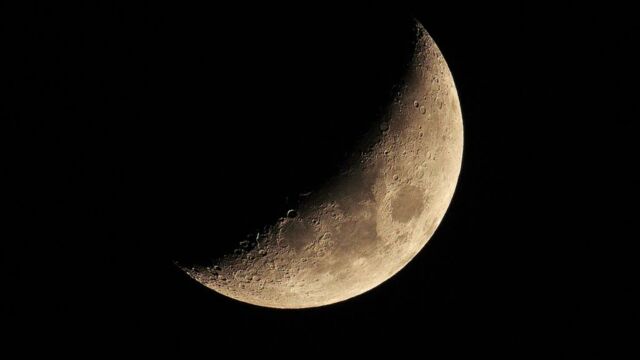Sleepless nights are no stranger to any of us, but it’s not just our worries and excessive screen times keeping us awake; the moon might also play a part.
Discover our latest podcast
According to a sleep study conducted by the Uppsala University in Sweden, the lunar cycle can affect both men and women’s sleeping habits.However, it seems that men are more susceptible.
To conduct the study, researchers assessed the sleep of over 800 participants during either a waxing moon (when the light reflected by the moon is increasing) or a waning moon (when the moonlight is decreasing).
The participants, aged 22 and 81, carried out their duties at home, fitted with polysomnography equipment that measured sleep quality through factors like brain waves, muscle tension, movement and heart activity over the night’s sleep stages.
Men sleep worse during a waxing moon
The study found that both men and women slept worse during a waxing moon, but this effect was more prominent in male participants. Overall, men who were analysed sleeping during a waning moon slept better than men that snoozed over a waxing moon. Christian Benedict, associate professor at Uppsala University’s Department of Neuroscience and lead author of the study, explained:
We found that men whose sleep was recorded during nights in the waxing period of the lunar cycle exhibited lower sleep efficiency and increased time awake after sleep onset compared to men whose sleep was measured during nights in the waning period.
Researchers speculate that this effect could be due to the human brain responding to moonlight, with previous research on male’s sensitivity to ambient light possibly explaining why men tended to toss and turn more than women.
Are our sleeping patterns really tied to the moon?
The idea that our sleeping habits are somehow innately connected to the moon is a concept that has long been subject to controversy in scientific circles. Of course, when it’s dark out, most of us take that as a sign of an upcoming bedtime, but whether or not the phases of the moon can give us a bout of insomnia is still up for debate, and studies have shown inconsistent and conflicting results. Professor Benedict continued: ‘Our results were robust to adjustment for chronic sleep problems and obstructive sleep apnea severity.’
Our study, of course, cannot disentangle whether the association of sleep with the lunar cycle was causal or just correlative.
Although some may dub the idea of the moon affecting our sleep quality as pseudoscience, four separate studies have also all concluded that a full moon (when the moon is at full illumination) was associated with difficulty getting to sleep, worse quality sleep, and a shorter sleep time. However, the reason why researchers would get such a result is the real question.
While the theory cited by Professor Benedict suggested that restless nights could be affected by moonlight, this concept also has its own holes. One such being that, according to NASA, the light reflected by the moon is at a level 400,000 times fainter than the sun.
Furthermore, other studies connecting sleep disruption to a full moon were conducted on cloudy nights or in windowless environments, suggesting that moonlight might not be a factor at all.
It seems that science won’t find a conclusion to the debate any time soon, but if you’re genuinely worried about your sleep quality, we suggest investing in some blackout curtains and maybe putting your phone away before bed.















